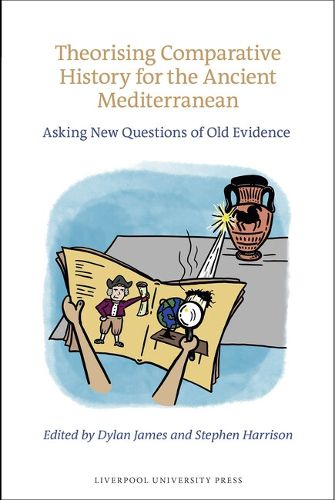Readings Newsletter
Become a Readings Member to make your shopping experience even easier.
Sign in or sign up for free!
You’re not far away from qualifying for FREE standard shipping within Australia
You’ve qualified for FREE standard shipping within Australia
The cart is loading…






Theorising Comparative History for the Ancient Mediterranean examines how 'soft' comparative history can illuminate the ancient Mediterranean world. This approach employs alternative periods and settings to prompt new understandings of antiquity, but differs from a side-by-side 'hard' comparison. This volume represents the first attempt to theorise the methodology and scrutinise its value for studying the ancient world. The book's ten chapters examine a cross-section of ancient cultures (Greece, Rome, Egypt, India, Afghanistan, China) and range across political, social, economic, cultural, intellectual, and military history, demonstrating the versatility of the approach. Contributions draw from a variety of comparative settings (e.g. Spanish America, contemporary sub-Saharan Africa, Early Modern Europe, the Antebellum American South) and demonstrate that there are myriad comparative paths to prompt rethinking about antiquity. Each contributor reflects on their own individual practice, and the introduction meditates on the strengths, limitations, and commonalities across these chapters. The volume thus offers a blueprint for how scholars in various fields can utilise comparative history.
$9.00 standard shipping within Australia
FREE standard shipping within Australia for orders over $100.00
Express & International shipping calculated at checkout
Stock availability can be subject to change without notice. We recommend calling the shop or contacting our online team to check availability of low stock items. Please see our Shopping Online page for more details.
Theorising Comparative History for the Ancient Mediterranean examines how 'soft' comparative history can illuminate the ancient Mediterranean world. This approach employs alternative periods and settings to prompt new understandings of antiquity, but differs from a side-by-side 'hard' comparison. This volume represents the first attempt to theorise the methodology and scrutinise its value for studying the ancient world. The book's ten chapters examine a cross-section of ancient cultures (Greece, Rome, Egypt, India, Afghanistan, China) and range across political, social, economic, cultural, intellectual, and military history, demonstrating the versatility of the approach. Contributions draw from a variety of comparative settings (e.g. Spanish America, contemporary sub-Saharan Africa, Early Modern Europe, the Antebellum American South) and demonstrate that there are myriad comparative paths to prompt rethinking about antiquity. Each contributor reflects on their own individual practice, and the introduction meditates on the strengths, limitations, and commonalities across these chapters. The volume thus offers a blueprint for how scholars in various fields can utilise comparative history.